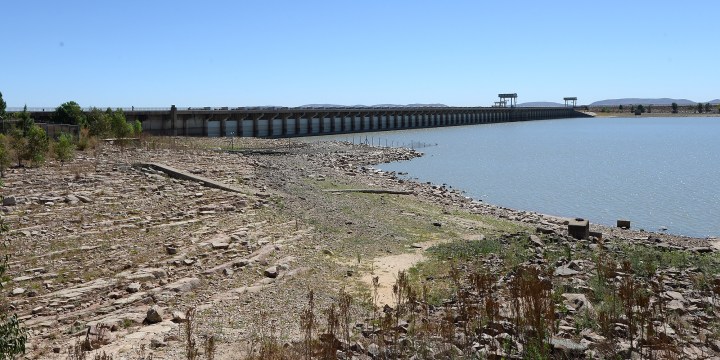BUSINESS MAVERICK OP-ED
SA needs a robust water resilience strategy amid ratings downgrades and Covid-19

The recent downgrades of South Africa’s investment ratings present serious constraints to the government’s plans to fund water infrastructure in a climate of water scarcity. We need to invest properly and wisely.
The hardy aloe plant made yet another appearance in the Budget speech this year. Carried to the podium by Finance Minister Tito Mboweni, it was meant to symbolise the ongoing challenges facing this country.
“For the Aloe ferox to grow to its full potential, we need to do things that will help in the medium to long run,” said Mboweni, mentioning the need to provide just the right amount of water. Our money, he said, must be invested properly.
It was announced at the time that the government would inject R10-billion into the infrastructure fund over the next three years to support the R200-billion capacity that is to be built under the Development Bank of South Africa.
A National Treasury document, Economic transformation, inclusive growth, and competitiveness, offers some appreciation for the relationship between water and the economy. Investment in water security is vital to enable economic growth.
The document cites the 2019 Budget review, noting that water infrastructure projects have been allocated R90,4-billion between 2019/2020 and 2021/22. That number is now R106,9-billion, allocated for the term 2020/21 to 2022/23, in spite of the fact that the National Water and Sanitation Masterplan is costed at over a trillion rand. Recognising this, the government has touted the idea of not only private sector participation in the water sector, but also private sector funding.
The downgrading by Moody’s of South Africa’s sovereign credit rating to sub-investment grade, as well as a further downgrade by Fitch, presents serious constraints to the government’s plans to fund water supply infrastructure.
The Water Masterplan’s comprehensive approach to achieving a more solid water security future for South Africa is driven by a funding model that is highly susceptible to the country’s credit rating. Large infrastructure projects such as Lesotho Phase II and the Umzimvubu dam have debt capital funding models with state guarantees. The contagion effect of a sub-investment grade rating puts the projects at the mercy of the markets and the Development Finance Institutions (DFI). This puts our ability to deliver on the social projects, like the Sustainable Development Goals (SDG), as well as make water available for economic growth and development at risk.
Then there is the area of new technologies and innovations. The 4IR toolbox has the potential to take our planning, monitoring and control systems to a completely new level.
Earth observation and remote sensing, combined with smarter management of big data, will enable real-time water and wastewater management that encourages efficiency of use, more sustainable access and higher levels of water security.
The Brown Revolution with its new waterless and low-water toilet systems feeding into non-sewered decentralised waste treatment facilities will not only ensure South Africa’s ability to meet the goal of universal access to safe and dignified sanitation, but also has the potential for us to supply a global market consisting of two billion people who lack access to proper sanitation.
If we add to this the science enabling the beneficiation of human waste to produce high-value products – energy, chemicals, proteins and lipids – we have a real chance to forge a new industrial platform with businesses feeding a global market and creating jobs for countless South Africans. These have already been recognised as priorities in the Industrial Policy Action Plan (IPAP). But for this to happen, serious investment from home and abroad is required. The potential for good returns is high.
An inability to develop new infrastructure and ensure long-term water security would cost the country heavily in terms of GDP. The government, therefore, has a monumental task ahead to ensure that its people and industries don’t run dry. DM
Dhesigen Naidoo is CEO of the Water Research Commission and Xhanti Payi is an economist and founder of Nascence Advisory and Research.
















 Become an Insider
Become an Insider